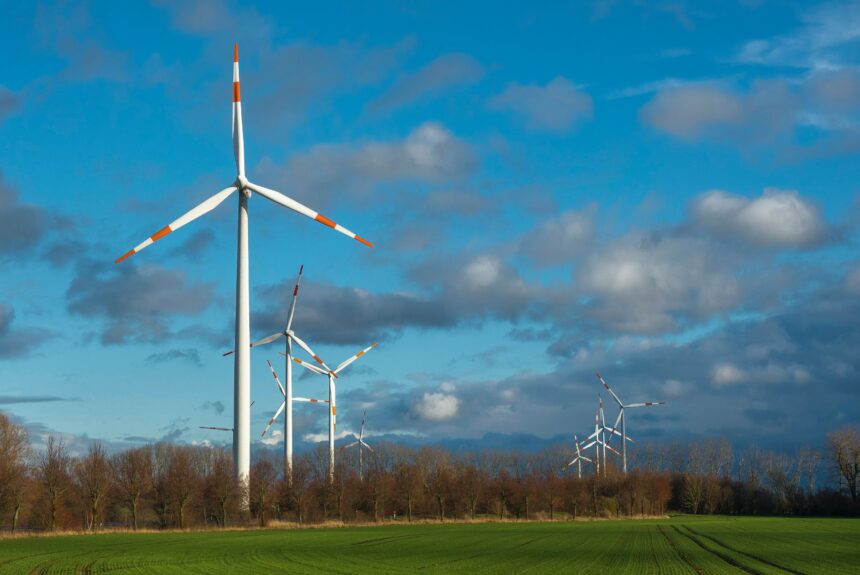Today marks the beginning of National Clean Energy Week. For the past six years policymakers, innovators, and experts have convened in Washington, D.C. to celebrate the incredible work that the private and public sectors are doing to accelerate clean energy. Registrants can tune in to virtual sessions throughout the week to listen to esteemed speakers such as Rep. John Curtis (R-UT), Sen. Kyrsten Sinema (D-AZ), Sen. Cynthia Lummis (R-WY), and more.
While a majority of the National Clean Energy Week coverage will be dedicated to policies that unlock innovation, there is already robust private sector activity that is creating the technologies that are needed to reduce emissions and bolster energy security. Here are 10 companies that are paving the way in the clean energy space.
1. NuScale
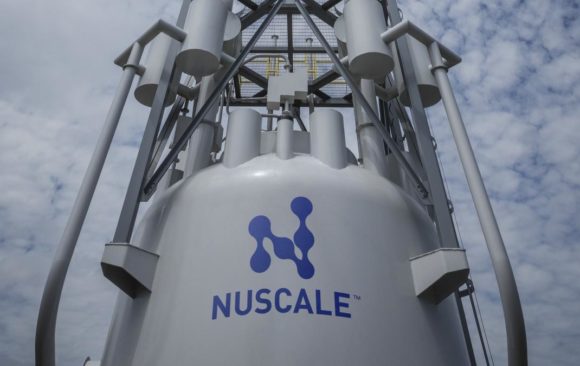
In 2020 the Portland, Oregon-based company became the first to receive U.S. Nuclear Regulatory Commission design approval for its small modular reactor. Since then NuScale has been hard at work establishing itself in both the United States and abroad. Recently the company signed MOUs to bring its technology to Poland, Romania, the Czech Republic, and other countries.
2. Modern Electron

Energy use in buildings is responsible for 17.5% of total global energy-related emissions each year, according to Our World in Data. Modern Electron is looking to address the carbon footprint of home heating in the U.S. with its Modern Electron Reserve. As Kelvey Vander Hart explains:
“The Modern Electron Reserve functions as a converter of sorts. Intercepting the natural gas that is commonly burned to heat homes, the converter splits the gas into parts. All methane is stripped and converted into a form of graphite carbon that can be emptied into the trash rather than entering the atmosphere. What is left after this process is hydrogen gas, which continues on to the furnace to be burned as a cleaner fuel.”
3. RepAir

RepAir’s direct air capture system is unique in that it can operate without heat while sequestering carbon at a gigaton scale. As C3 has previously reported:
“The company uses a battery-inspired, electrochemical device that separates out CO2 using only electricity and a selective membrane. The outputted carbon dioxide can be used to create synthetic fuels, to increase greenhouse production, or it can simply be stored in the ground.”
RepAir’s innovative technology has received the attention of groups such as ESIL and Counteract who recently awarded the startup with a $1.5 million funding round.
4. Parallel Systems
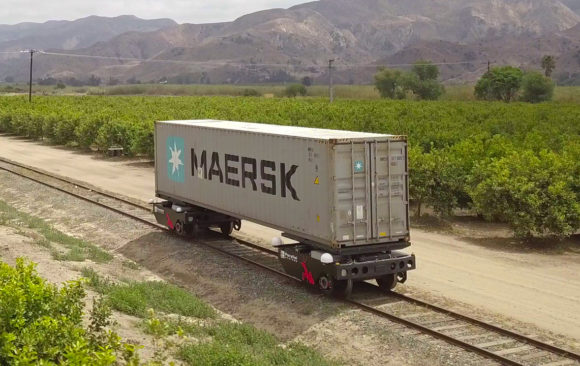
Started by three former SpaceX engineers, Parallel System is optimistic that its technology will transform the U.S. freight industry. The company is developing automated electric shipping containers that can carry shipping containers as a single or double-stacked load. Nathalie Voit writes in C3:
“The vehicles can link together to form platoons or travel as individual units. Because each railcar is individually powered, the train cars can split off from each other while en route to travel to different destinations. The self-assembling nature of the pods means cargo can be transported faster and to a wider range of destinations by more diverse routes.”
Learn more about Parallel Systems here.
5. Sesame Solar
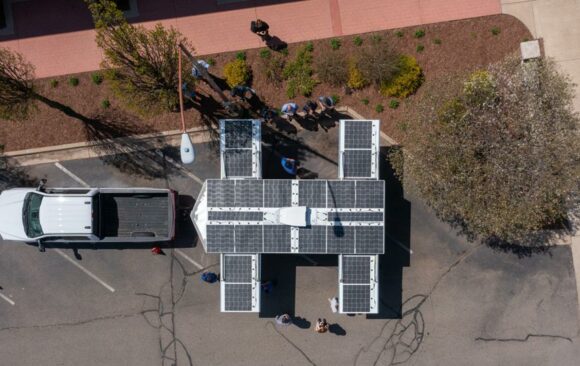
Sesame Solar is changing the way that we power disaster relief. The Michigan-based startup has developed the world’s first fully-renewable emergency relief nanogrid. When disaster strikes, these grids can be deployed and provide shelter and power for communities impacted without emitting greenhouse gasses. Sesame Solar has sold over 50 of its nanogrids to a variety of buyers including the Air Force and Comcast.
Click here to read about Sesame Solar.
6. FreeWire Technologies
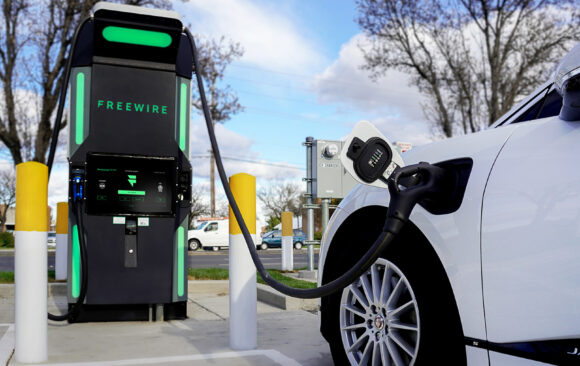
FreeWire has created the first of its kind fully deployable charging station. Unlike other chargers on the market that take hours to charge a car, FreeWire’s chargers can fill a battery up to 80% of its maximum capacity in as little as 20 minutes. The company’s latest invention, called the Boost Charger 200, delivers drivers 200 miles of range in 15 minutes.
Since its founding, FreeWire has earned more than $200 million in funding.
7. Verdox
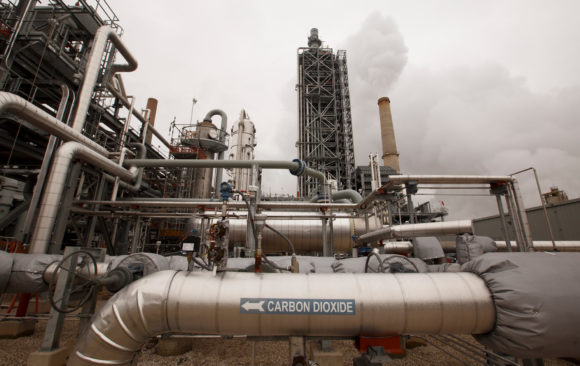
This MIT startup has created a solution that uses 70% less energy than traditional carbon capture systems by avoiding energy loss from cooling and heating. Verdox uses electric voltage, not heat, to create a more efficient process. This eliminates the need for water or heat within the system while applying electricity more efficiently. It also makes the entire system scalable by design—the technology is built in stacks of electrodes that resemble arrays. The modular approach means that you simply add or take away stacks to get the right size.
This past year funders led by Breakthrough Energy Ventures committed $80 million to help Verdox scale up its hyper-efficient technology.
8. Ubiquitous Energy

The Silicon Valley startup is throwing its hat in the ring to lower the lifecycle emissions of the building sector. Ubiquitous Energy has created fully transparent photovoltaic glass films for windows. Although other rival solar surface products exist, Ubiquitous Energy’s technology is the only one that can harness electricity with its nanometers-thick coating of semiconducting materials while remaining essentially invisible. The vertical solar panels make for a sustainable and attractive alternative to regular glass windows.
After a $30 million funding round, the company has now raised $70 million to accomplish its mission to decarbonize homes and office buildings.
9. 8 Rivers Capital

The Durham, North Carolina-based clean technology firm received $100 million to decarbonize the Asia-Pacific region. The funding, which was from SK Innovations, will help 8 RIvers deploy its famed Allam-Fetvedt Cycle power generation system and a clean hydrogen production process called 8RH2. The latter can generate clean hydrogen with full carbon capture that is cheaper than traditional steam methane reforming methods, the standard hydrogen production technology of today.
10. Spiers New Technologies
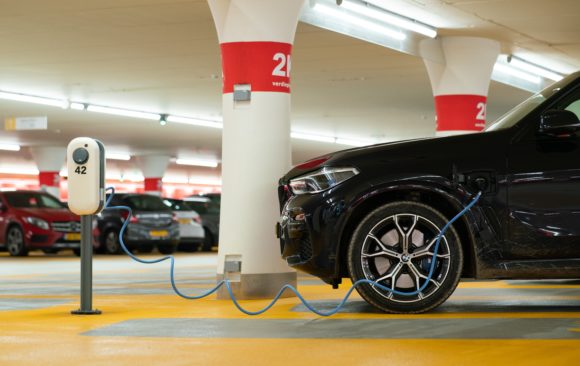
While EVs can play an important role in decarbonizing the transportation sector, their batteries are notoriously hard to recycle or repurpose at the end of the life cycle. Enter Spiers New Technologies, an Oklahoma City, Oklahoma-based company. Spiers works in four areas, which they refer to as the 4Rs: repair, remanufacturing, refurbishing, and repurposing of EV batteries. Here’s how the process works:
Someone could bring their EV into the mechanic, and the mechanic determines they need a new battery. That mechanic would then call Spiers New Technologies (SNT), who would pick up the dead battery and provide a new one (typically by the next day). The dead battery would then return to SNT facilities to be run through one of the 4Rs.
While simple enough, SNT is providing a necessary service to reduce the environmental impact of EVs and their batteries.
Every day the private sector is developing new technologies that can help us reach climate goals in an economically viable way. That’s something to celebrate not only during National Clean Energy Week but all year long.
The views and opinions expressed are those of the author’s and do not necessarily reflect the official policy or position of C3.
